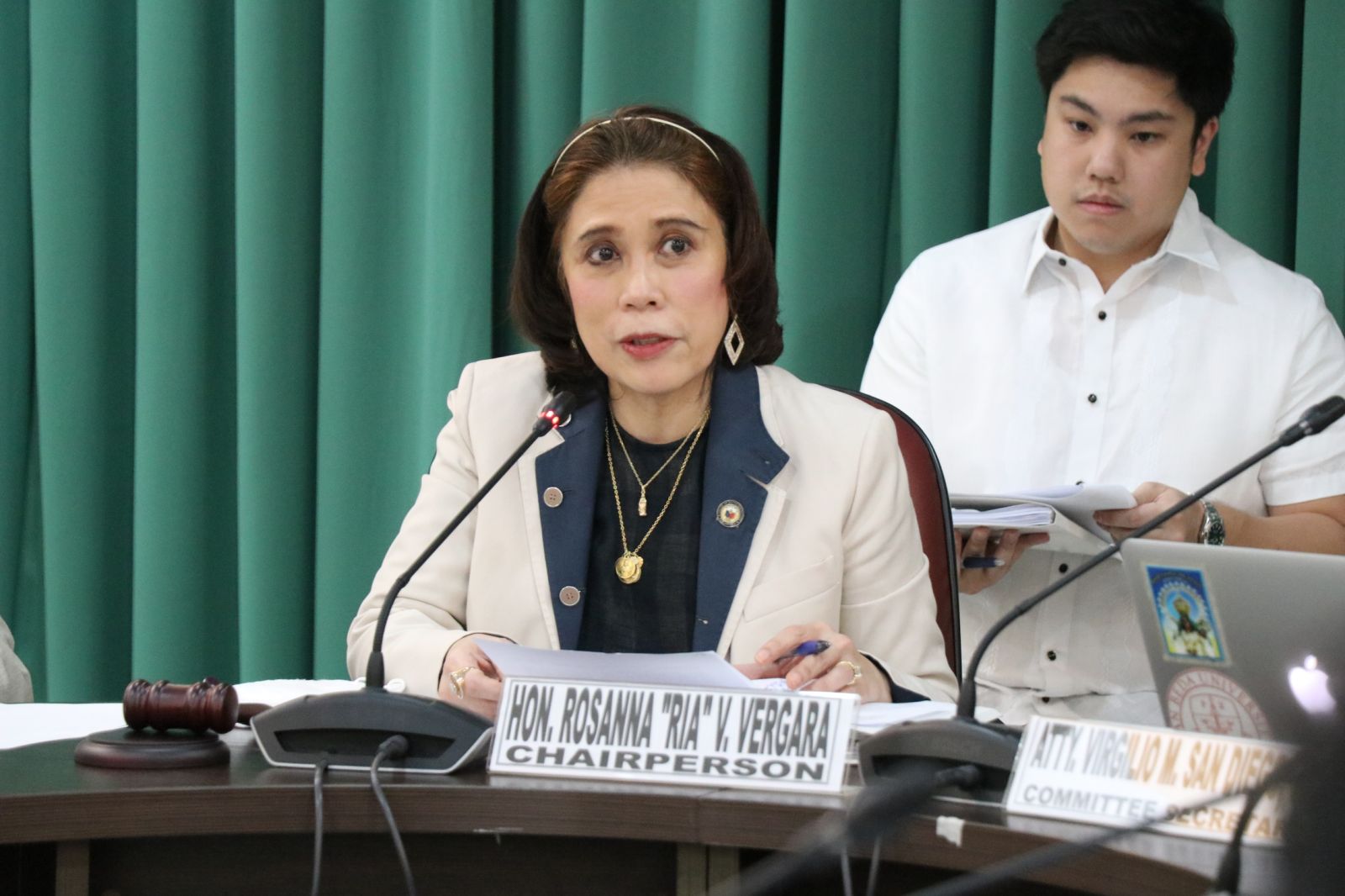Vergara bats for RCEF extension as pro-farmer program reaches final year
At A Glance
- Nueva Ecija 3rd district Rep. Ria Vergara wants to extend the duration of the Rice Competitiveness Enhancement Fund (RCEF) program as spelled out in Republic Act (RA) No.8178 or the Agricultural Tariffication Act.
 Nueva Ecija 3rd district Rep. Ria Vergara (PPAB)
Nueva Ecija 3rd district Rep. Ria Vergara (PPAB)
A ranking solon wants to extend the duration of the Rice Competitiveness Enhancement Fund (RCEF) program as spelled out in Republic Act (RA) No.8178 or the Agricultural Tariffication Act.
For this purpose, Nueva Ecija 3rd district Rep. Ria Vergara, chairperson of the House Committee on Social Services, has filed House Bill (HB) No.9547, which is currently pending before the House Committee on Agriculture and Food.
The full title of the measure reads, "An Act extending the period of implementation of the Rice Competitiveness Enhancement Fund, amending for the purpose Republic Act (RA) No.8178, as amending by RA Nos. 9496, 10848, and 11203, otherwise known as the 'Agricultural Tariffication Act.'"
The Vergara bill seeks to amend the language of the law so that the six-year RCEF could be expanded into a 12-year program.
The RCEF is slated to end this year. According to RA No.8178, there will be a mandatory review of the RCEF on its sixth and final year specifically to decide whether to continue, amend, or end the program.
Under the program, a P10-billion assistance fund is set aside for farmers using the tariff revenues. The fund is apportioned as follows: 50 percent for machinery; 30 percent for rice seed development, propagation, promotion; 10 percent for expanded rice credit assistance or loans; and 10 percent for rice extension services.
Given all of these, Vergara says that the RCEF is a huge boon to the country's rice producers. “The benefits that RCEF has contributed to the country's rice sector are clear."
"The rice farmers and other rice industry stakeholders have greatly benefitted in the form of rice farm machineries and equipment, rice seed, credit assistance and direct and unconditional cash aid. Thus, the extension of the period of implementation of RCEF is necessary," read the explanatory note of HB No.9547.
“Further, the extension of RCEF will support the needs of the farmers to become more competitive in the global rice industry. The technology and modernization of rice farming will greatly benefit rice farmers to be more competitive with the quality and price of the rice they produce compared with imported rice," added the Visayan.
The measure said that the tariffs collected from rice imports are reinvested back into the local rice industry through the annual RCEF.
"The fund earmarks resources for the modernization of the agriculture sector and provides farmers with greater direct access to credit, high-quality seeds, agricultural machinery, and skills training on modern farming technologies," read the bill.
Vergara noted that rice farmers have also received P8.2 billion in direct and unconditional cash aid from the 2019 to 2021 rice tariff collections in excess of P10 billion under the Rice Farmers Financial Assistance program.